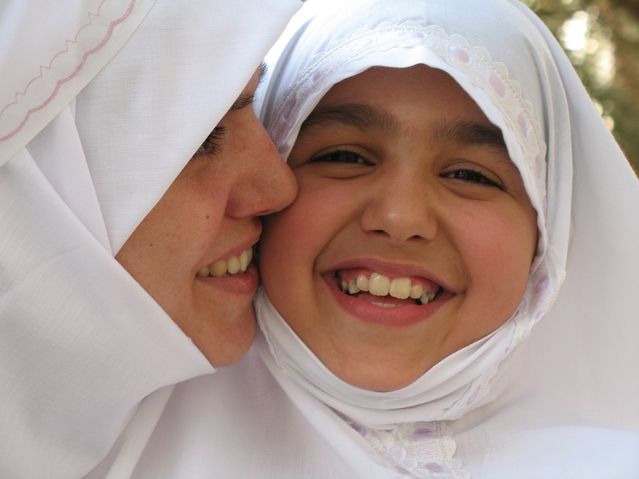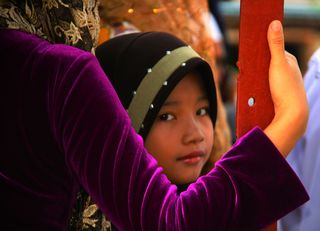Embarrassment
How to Understand Honor Killings
A guide for Westerners in how to think about the unthinkable
Posted August 11, 2016
The subject of honor killings has made headlines recently, as it does from time to time in the Western world, because of the death of Qandeel Baloch, a beautiful young woman in Pakistan who defied social customs by having a voice and displaying her face in public. She did so largely through a social media presence that is fairly normal and unremarkable in many countries but is almost unheard of in her own. She was apparently killed by her brother for “dishonoring” her family by posting revealing pictures of herself online. Her brother is unremorseful and unrepentant, believing as so many honor killers do that his actions were both necessary and justified.

It is impossible to say how many such murders occur around the world, as the majority of such cases are likely to be kept hidden from public view. From Indonesia to Egypt, women are killed for running away with someone they love who has not been approved by their families, or for simply going out in public without a male chaperone. In less extreme cases, they might be burned with acid for uncovering their face in public, or they might be gang-raped in revenge for the crimes of a family member.

One reason the cultural practice of honor killings (or honor-based violence more broadly) is so remarkable is that it runs counter to the human instinct to preserve the lives of family members. Or, less clinically, it contradicts the instinctive love of a parent for a child, the protective affection of a brother for a sister. Evolutionary theorists a generation ago explained that the principle of “inclusive fitness” meant that an organism’s fitness is not limited to just its own reproductive success, but extends to that of its genetic relatives, especially its siblings and offspring, with whom it shares the most genetic material. This principle was said to help explain why an organism might exhibit self-sacrificing behaviors for its close kin under certain circumstances. But this principle also seems clearly contradictory to the practice of honor killings. What could harm an organism’s fitness more than killing its offspring, the very currency of natural selection? Cultural beliefs and values seem to have an amazing power, capable of overriding the most visceral urges of human nature.
Understanding Honor: A Cultural Primer
Although I do believe that culture is powerful, I also think this seeming contradiction between culture and human nature is more apparent than real. In fact, simply marveling at the paradox might keep us from understanding why honor killings occur, perpetuating our Western ignorance and getting in the way of our coming up with helpful solutions to a practice that most of us abhor.
To understand why honor killings occur, we need to appreciate the importance of reputation in societies known as honor cultures. In an honor culture, reputation management is perhaps the most important social ethic there is, superseding all other values. Men in honor cultures are encouraged to seek reputations for being tough and intolerant of disrespect, whereas women are encouraged to seek reputations for being loyal to family and sexually chaste. If someone insults your honor, you must respond—typically in an aggressive or even violent manner—or you risk incurring the stain of dishonor. And dishonor remains like blood on white linen. It doesn’t come out easily and might never be completely removed. This is why being dishonored in an honor culture is often considered a fate worse than death. To make matters worse, an individual’s honor is intimately connected with his or her family members, as well as with the broader community. As a consequence, the dishonor of one person can stain many others. This is what drives people in such cultures to engage in honor killings.
Thus, in honor-oriented cultures an honorable reputation (defined locally, not by strangers in other countries) is seen as vital to success, and to an extent, it is. Honor cultures develop and persist in places characterized by economic vulnerability and the absence of the rule of law. In lawless societies, people do not believe that law enforcement, if it exists at all, can be counted on to protect them from exploitation and assault. The result of this disbelief, coupled with a sense of economic vulnerability, is that people put enormous stock in their reputations to protect them from social predation. Making sure that people know you as someone who is not to be trifled with is a way to reduce the chances that anyone will try to exploit you or take what is yours. To lose your honor is to lose this protective shield, without which you are naked in a world full of thorns and thistles. Having honor, in contrast, confers social status, which can yield economic and social opportunities, including access to high-quality mates. Without honor, a man or woman in an honor culture is likely to be socially ostracized, economically limited, and unable to procure a mate.
Although it might seem obvious that the cultural ideal of honor is closely related to certain religious traditions—including Islam—the data do not support this assumption. Research in Jordan, for instance, showed that teens who strongly endorsed the practice of honor killings did not come from more religious homes (Islamic or otherwise) than teens who rejected this practice. The ideology of honor is a cultural ideology, but it does not appear to be closely linked with religious ideology, either in Middle Eastern or Western countries.
Seeing the importance of honor in this way, Westerners might be able to understand that protecting one’s honor, even to the extreme of killing one’s sibling or one’s child, might have an evolutionarily adaptive function, perhaps even enhancing fitness in the long run. In a society in which reputation is everything, what is the long-term cost to fitness of sacrificing one child (often one of many) if it means protecting one’s honor? On balance, the benefits might well outweigh the costs—in evolutionary terms.
What Can Be Done?
Anecdotally, at least, reports of honor killings in places such as Pakistan appear to have increased in recent years, rather than decreased, and this seems to be particularly true among rural villages. This rural trend is consistent with the dynamics of honor-related violence in the U.S., in what is known as the “small town effect.” More honor-oriented states in the U.S. (particularly in the South and West) exhibit elevated rates of argument-related homicides among White men—precisely the pattern that an honor-based perspective would lead us to predict. But this elevation in argument-related homicides is magnified further among those living in more rural communities, places where everyone knows your name and everyone knows your shame. Small communities enhance the social consequences of both good reputations and bad ones. The same dynamic appears to be at work in rural parts of more extreme honor cultures halfway around the world, where honor killings are justified in the name of preserving a family’s reputation.

Understanding honor killings through this cultural lens has led some, such as philosopher Kwame Anthony Appiah, to suggest the use of mockery as a way to change this social practice. Appiah has described how a variety of undesirable behaviors, from the slave trade to foot binding, disappeared in a relatively short timespan once they came to be viewed as a source of derision rather than as a source of respect. This approach makes sense, in light of the incredible value honor cultures place on respect (and the avoidance of disrespect). I myself have advocated such a view. I see it as a social-psychological "judo" move, using the power of a cultural ideal to change a long-standing cultural practice tied to that very ideal.
Here is the potential shortcoming of this approach, though. For mockery to be an effective catalyst for social change, it must originate from within the society in question. Now, to be sure, “originating” does not have to mean that people outside the society can’t hold a similarly contemptuous view, nor that those outside of the society can’t ever suggest that the practice is despicable. However, if people within an honor culture perceive this disdain as a form of social imperialism, the imposition of a foreign value system on their community, then they might, paradoxically, hold even tighter to the practice as a way to defend and maintain their cultural identity.
In this way, as Pakistani writer Rafia Zakaria has eloquently argued, honor killings could become more common rather than less common, even in the face of increasing legal sanctions, to the extent that these sanctions are construed as the capitulation of far-away government officials to the pressures of American or Western leaders. If America is seen as the purveyor of a Western worldview that is hostile to their own, or worse, if America is seen as their country’s enemy, then traditionalists might well lift up the practice of honor killings as a badge of cultural loyalty or a form of protest against Western cultural encroachment. Where legal sanctions are more difficult to enforce, such as in more rural areas, honor killings might increase in frequency, despite, or even because of, new laws against them.
To be perfectly clear, I do not mean to suggest that we ought to strive to understand the cultural practice of honor killings so that we come to judge this practice less harshly. Understanding does not mean condoning. Rather, understanding why people might hold a belief that appears to run counter to human nature is the first step toward figuring out how to change a practice that has remained intransigent to previous attempts to eradicate it. Indeed, understanding why honor killings occur might also help us, in our properly righteous indignation, to avoid accidentally making these horrific murders even more common than they already are.




